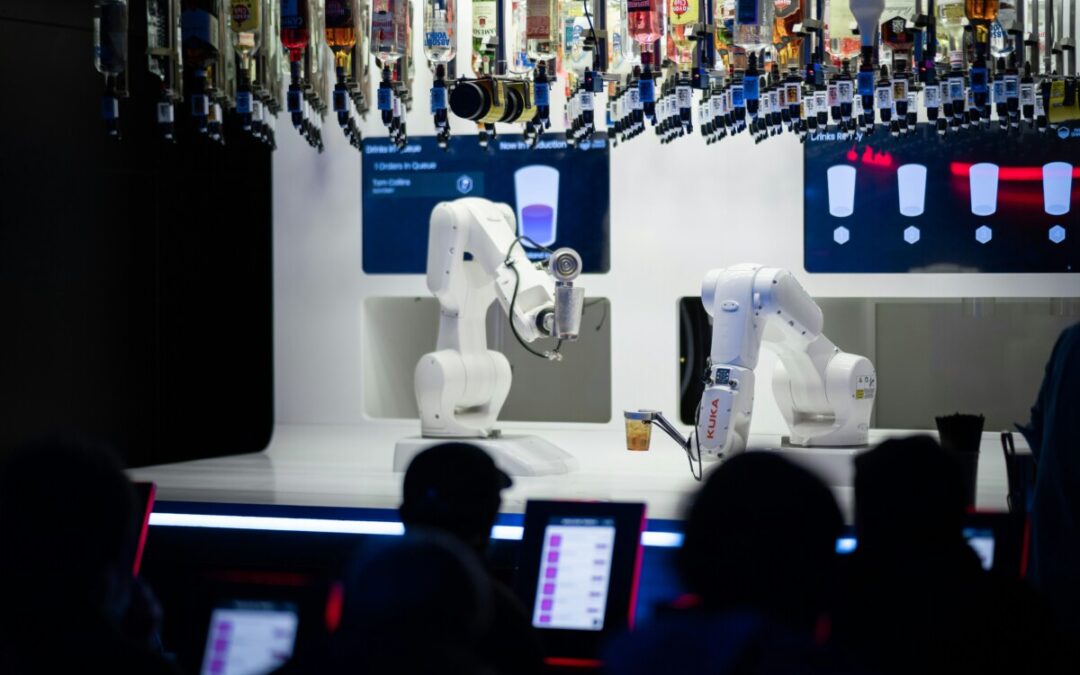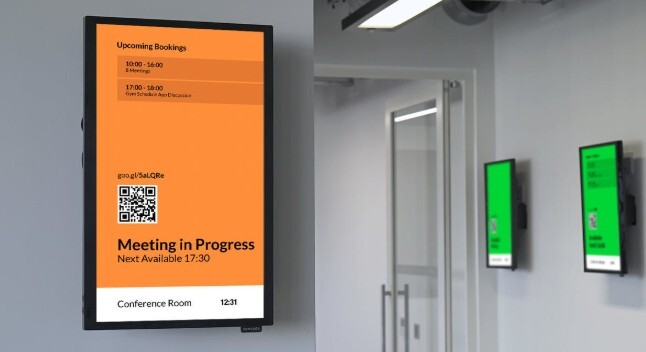Why Hire a ReactJS Developer?
Are you looking for a ReactJS developer? Do they need to be someone who can work with other languages as well?
React is a JavaScript library which covers the front end. It is one of the most popular libraries that are used for developing interactive user interfaces. If you are looking for a developer that knows this language, then you’ve come to the right place!
How to Hire the Best ReactJS Developers for your Project?
This article will help you find the best React developers for your project. We will go over the different factors that affect your decision and how to find and select the best developers for your project.
When is the Best Time to Hire a ReactJS Developer?
The best time to hire a ReactJS developer depends on your business needs. It can be a short-term solution, if you need an engineer to work on a project for a few weeks or months. Or it can be a long-term hire if you have an idea or product that will stay in the market for many years and there is a need for someone with the expertise of ReactJS developer.
ReactJS is a JavaScript library for building user interfaces. It is used on websites and mobile apps to vividly render the interface and make it interactive.
Right now ReactJS has more than 100,000 stars on GitHub and 20,000 repositories. With such a large community of developers using it as their preferred framework, React programmers are some of the most sought-after people in the industry.
It’s not always easy to find a good time to hire ReactJS developer because some companies may be still developing their products whereas others may be looking for someone who can help them scale their business quickly. But generally speaking, there’s always a need for React developers because every new website or app needs one or more of these people on board to avoid an outage or failure in the future.
What are the Requirements of a Good React Developers?
A good React developer needs to know and understand the basics of how JavaScript and the DOM work. They also need to have a good understanding of Node.js, React’s JSX, and React’s Flux architecture.
How to Find Both Awesome Techies And Perfect Match for Your Project
Find the right techies
Since techies are in high demand, you need to know where to find them. You can find them on LinkedIn, Twitter or on GitHub. You can also post your project requirements on various job boards like Indeed or Dice. This will help you get in touch with techies who might not be actively looking for jobs at the moment.
Find the right team for your project
If you want to work with an agency, then make sure that they have a good team of developers and designers who specialize in creating web and mobile apps that are compatible with your needs. They should also have experience working with companies of similar size and industry as yours.
Why Hire a ReactJS Developer?
The majority of the jobs are focused on JavaScript, which is one of the most popular programming languages today.
Here are some of the reasons why you should hire a ReactJS developer for your project:
– You want to create dynamic front-end interfaces that work smoothly on any device
– You want to develop an interactive user experience for your website or mobile app
– You need someone who can code with an eye toward performance
– Your project needs someone who has knowledge in API integration, data visualization or SEO optimization
Investigate a ReactJS developer’s skills before interviewing
With the rise of React, the demand for React developers has also skyrocketed. With so many developers in the field, it can be hard to know where to start when looking for the right candidate. The following steps should help you find someone who is perfect for your company.
If you’re looking for a React Native developer, there are some interview questions that you may want to ask the applicant. Hiring for React developers can be hard because of the shortage of qualified candidates. However, if you’re interviewing prospects in person, here’s what you should be asking them. The following set of questions can help you find out the skills and experience of a ReactJS developer:
- What is your favorite feature of React?
- What is the difference between Virtual DOM and Document Object Model?
- What are some of the most common use cases for React Native?
- How do you debug code in React?
- How do you write unit tests for react code?
Interview with a Successful ReactJS Developer
There are many different approaches to interviewing with different technologies. If you are going to conduct interview for a web developer position, the interview process will be different than for someone applying for an iOS developer position. A few examples of frequently asked interview questions include:
What is your favorite programming language? Why do you like it?
Do you know any other languages
What is your favorite framework?
Do you have any experience with this specific framework?
Have you ever worked on anything similar to this before?
ReactJS and React Native are two frameworks for building user interfaces (UI). They are both developed by Facebook and released as open source. Facebook offers both of these frameworks as a free download.
There are many different options to take into account when you’re hiring React developers. You should always look for people that have either ReactJS or React Native experience and can build responsive and high-quality UIs. Some other important features to take into account: the team’s experience with the framework, their ability to work cross-functionally, scalability of their code, expertise with JSX syntax, and whether they have knowledge of other tools like Webpack or Babel.
Clavis Tech does a thorough screening of all the developers and pay special attention to their skill set so that our client companies don’t have to go through this hassle and can easily get started on their next big project.
ERP vs CRM: Key Differences, Strengths, and How Clavis’ ERP Drives Organizational Success
In the digital age, businesses strive to leverage advanced tools to streamline operations, boost productivity, and foster better customer relationships. Two pivotal software solutions that play a significant role in achieving these goals are Enterprise Resource Planning (ERP) and Customer Relationship Management (CRM) systems. While these tools may seem similar at first glance, they serve distinct purposes and offer unique benefits, and it is important to understand why you may need one or the other—or both in tandem.
1. What is ERP?
ERP stands for Enterprise Resource Planning, a comprehensive software suite that manages and integrates core business processes. These processes often include:
- Finance and accounting
- Human resources
- Supply chain management
- Inventory and order management
- Manufacturing
ERP systems centralise business data, allowing various departments to collaborate seamlessly and make informed decisions based on real-time insights.
Core Features of ERP Systems
- Centralized Data Management: Consolidates information from all business departments into one platform.
- Process Automation: Automates repetitive tasks to improve efficiency.
- Scalability: Can grow with your business, accommodating new functionalities as needed.
- Compliance Support: Helps organisations meet regulatory requirements.
- Advanced Analytics: Provides detailed insights to support strategic decision-making.
2. What is CRM?
CRM, or Customer Relationship Management, is software that focuses on managing a company's interactions with current and potential customers. The primary goal of a CRM system is to improve customer satisfaction, retention, and acquisition through personalised communication and efficient management of sales and marketing activities.
Core Features of CRM Systems
- Contact Management: Maintains detailed records of customer interactions and preferences.
- Sales Pipeline Tracking: Manages leads and monitors the sales process.
- Marketing Automation: Facilitates email campaigns, social media management, and more.
- Customer Support: Enhances post-sale services through ticketing systems and live chats.
- Data-Driven Insights: Helps identify trends to fine-tune marketing and sales strategies.
3. ERP vs. CRM: Key Differences
While ERP and CRM are essential for business success, they cater to different aspects of operations.
|
Feature |
ERP |
CRM |
|
Primary Focus |
Internal processes and operational efficiency |
Customer interactions and relationships |
|
Key Functions |
Accounting, supply chain, HR, inventory |
Sales, marketing, customer service |
|
Target Audience |
Internal stakeholders |
Sales, marketing, and customer support teams |
|
Data Integration |
Focuses on consolidating operational data |
Specialises in customer-centric data |
|
Scalability |
Enterprise-wide |
Primarily focused on customer management |
4. The Strengths of ERP Systems
ERP systems are the backbone of operational efficiency. Their key strengths include:
- Holistic Business View: ERP provides a comprehensive view of business operations by integrating data across departments.
- Cost Reduction: Automating processes reduces manual labour and errors, saving time and money.
- Improved Compliance: Centralized data simplifies regulatory reporting and ensures adherence to standards.
- Inventory Optimization: Enhances inventory management, reducing waste and ensuring timely procurement.
- Agile Decision-Making: Real-time data insights help leaders make swift, informed decisions.
5. The Strengths of CRM Systems
CRM systems shine in the realm of customer relationship management, with benefits such as:
- Enhanced Customer Insights: Tracks and analyses customer preferences to tailor interactions.
- Improved Customer Retention: Personalization and timely communication foster loyalty.
- Streamlined Sales Processes: Automates lead management, reducing manual intervention.
- Marketing Optimization: Helps segment audiences for targeted campaigns.
- Boosted Collaboration: Facilitates alignment between sales and marketing teams.
6. ERP and CRM: Complementary Tools
Though distinct, ERP and CRM systems are complementary and often integrated to deliver maximum value. For instance:
- CRM manages the front-end relationship with customers, while ERP handles back-end processes like inventory and order fulfilment.
- Together, they provide a seamless flow of information, ensuring that customer-facing teams have accurate, up-to-date data on orders and services.
7. Clavis' ERP: The Ultimate Solution for Organizational Success
Clavis' ERP stands out as a robust ERP solution designed to address the multifaceted needs of modern businesses. Here’s how it can drive your organisation's success:
a) Comprehensive Integration
Clavis' ERP integrates seamlessly with existing systems, including CRM platforms, to unify your business processes.
b) Real-Time Data Analytics
With Clavis' ERP, decision-makers can access advanced analytics tools that offer actionable insights into performance, trends, and potential opportunities.
c) Tailored Functionality
Highly customisable to suit the unique needs of businesses across industries, Clavis' ERP works for all—from manufacturing to retail and more.
d) Enhanced User Experience
The platform boasts an intuitive interface, making it easy for employees to adopt and use effectively.
e) Cloud Capabilities
Leverage cloud-based deployment for flexibility, scalability, and cost savings.
9. Choosing the Right Solution for Your Business
When deciding between ERP and CRM—or opting for an integrated approach—consider the following:
- Business Goals: Identify whether your primary focus is operational efficiency (ERP) or customer relationships (CRM).
- Scalability: Choose a solution that can grow with your business.
- Budget: Evaluate the total cost of ownership, including deployment and maintenance.
- Customization: Ensure the platform can be tailored to your specific needs.
Final Thoughts
ERP and CRM systems are indispensable for businesses aiming to optimise operations and enhance customer relationships. While they serve distinct purposes, their integration offers unparalleled value. With Clavis' ERP, you gain a robust tool that streamlines your operations and integrates seamlessly with CRM systems to provide a holistic business solution.
Some other posts you might be interested in.

AI + RPA: The Ultimate Duo to Scale Your Business Faster and Smarter
Scaling a business isn’t just about doing more—it’s about doing more intelligently. As digital transformation redefines the modern enterprise, two technologies have emerged as transformative powerhouses: Artificial Intelligence (AI) and Robotic Process Automation...

Effortless and Effective Digital Signage for Every Organization with Clavisign
Explore how digital signage from Clavisign is transforming business communication and engagement.

15 Applications of Blockchain in Healthcare
"Blockchain" refers to a shared irreversible record of a chain of transactions, each of which is made up of one block, and which is held together by cryptographic keys ("hashes"). These keys or signatures are maintained in shared ledgers and connected by a network of...
